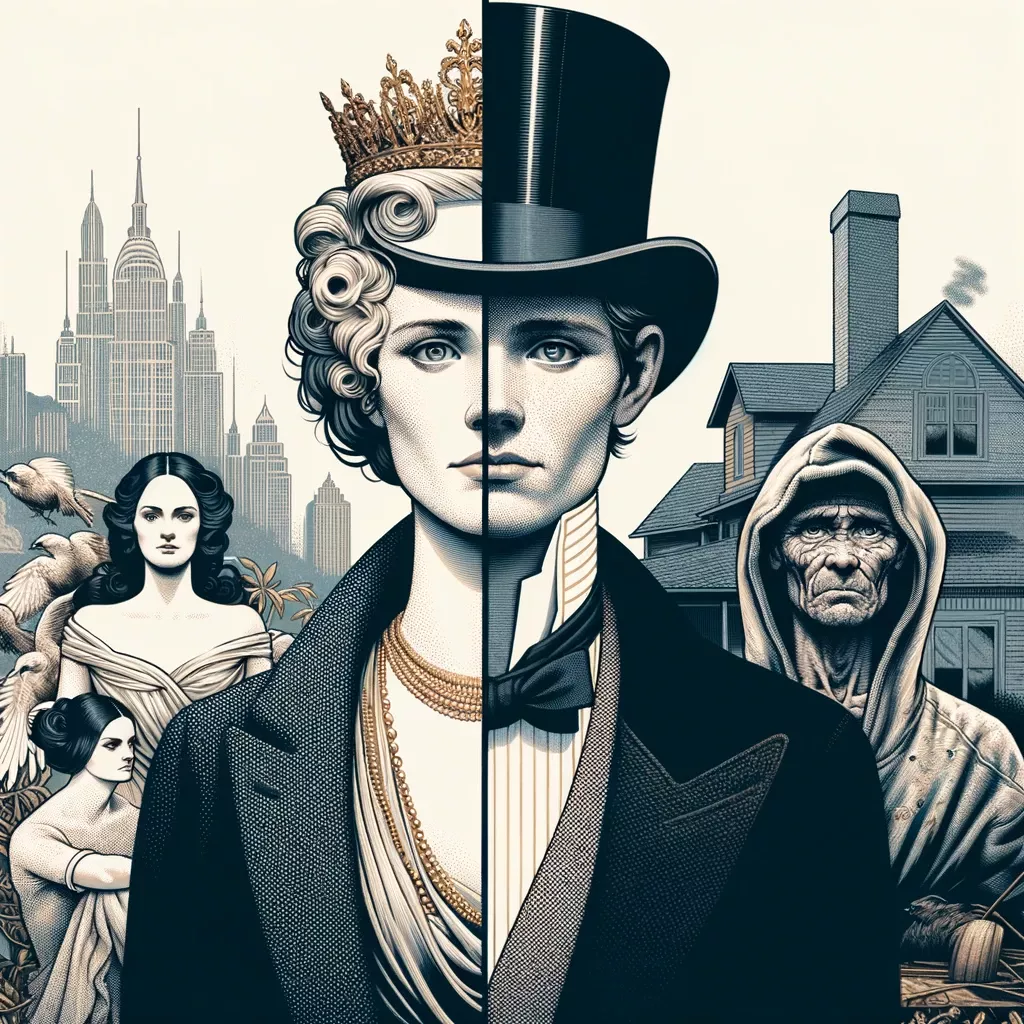I had a severe case of writer’s block with this article so I sat myself in the room with myself so I could hash it out without any distractions. Apologies beforehand for the format. I despise reading anything in question-and-answer form because it seems like lazy and uncreative writing. The following article is in question-and-answer form.
Author
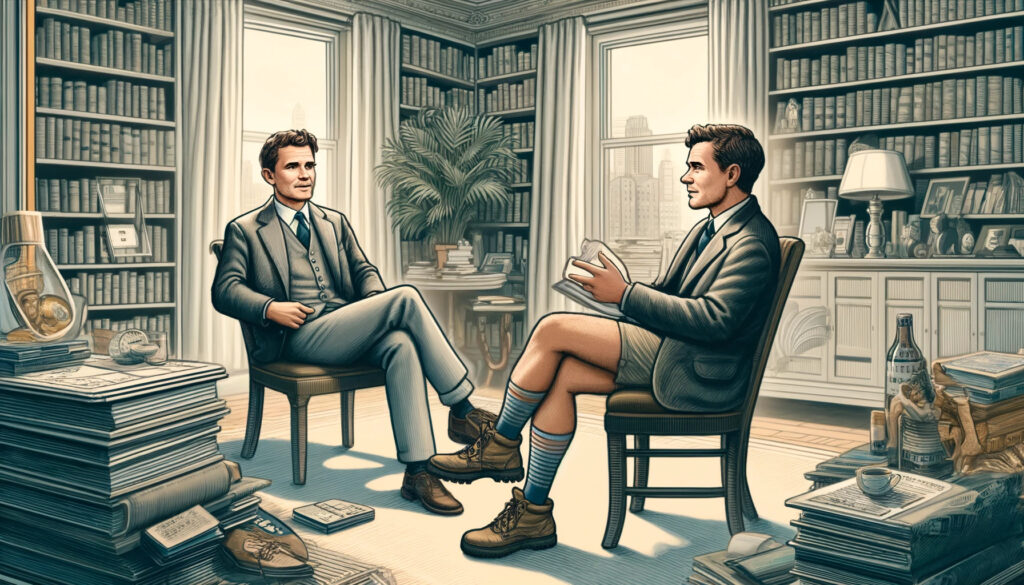
So, tell me about yourself.
I am you.
(Looking at notes) That seems about right.
Why are we here?
Sorry, I’m asking the questions here. I will also be saying some declarative sentences, but mostly asking questions.
Was that a question?
It was not. This is: Would you mind telling me the main thesis of this article?
Well, the main thrust is that we need to show our weaknesses to our partners. The closer we get, the more vulnerable we become. I mean, we do this anyway because we aren’t perfect. We make mistakes and make complete and utter fools of ourselves in front of our partners.
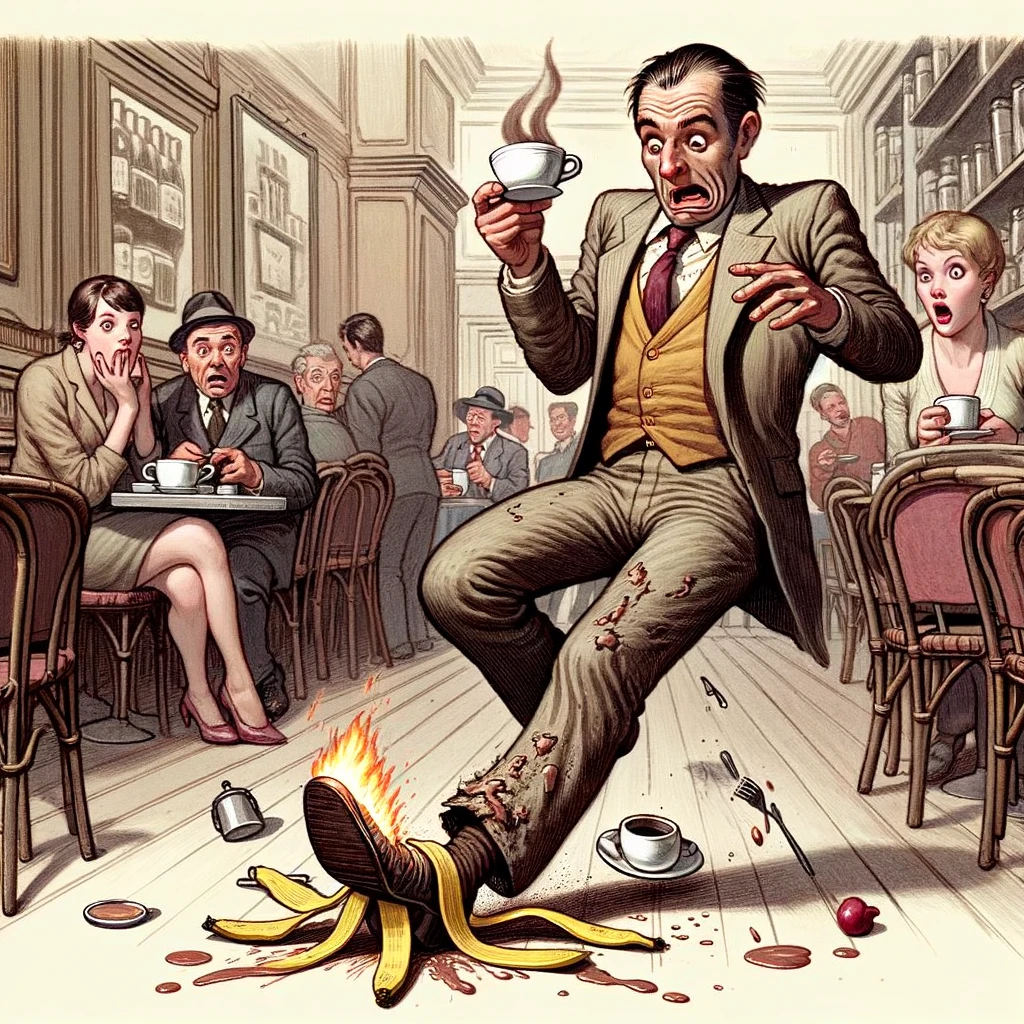
Wouldn’t this essentially end the relationship?
You’d think so most of the time. Sometimes it does, or most times, but not as many times as you’d think. We have other “Attraction Catalysts”, such as how we smell to each other—weird but true—and the sound of our voices, facial symmetry…or if we’ve had lunch or not, or how good or bad the weather is, affects how more or less attracted we are to someone.
“Attraction Catalyst”, is that a biological or psychological term?
I completely made that up. I’ll give you a list of definitions of other words I make up so you can append later. A.C. (commonly known as “Attraction Catalyst), can be both biological and psychological, because we are really talking about the same thing. There is no body-mind dichotomy at the end of the day.
Is there body-mind dichotomy throughout the day, and then it slowly diminishes?
No, it doesn’t actually exist.
Funny how we can think of concepts quite wholeheartedly even though they don’t exist, like “perfection”, “round circles” and “taxes”.
Is that a question?
It’s an aside but feel free to add commentary as though it were an implied question.
Yes, well, we show our weaknesses whether we like to or not. Our partner sees them, and they leave us or not. Sometimes it can be a misunderstanding and you sort it out. Basically, you’ll keep doing the stupid things for the most part until you die.
Now the crux of the argument is not that you should really focus on your stupid actions, but instead see the weaknesses and vulnerabilities of your partner. Once you live long enough with each other, you will inevitably see them.
Is that when you go if for the kill and start pointing out those weaknesses?
You’d think so, since most people end up doing that That is the worst possible thing you could do. You have survived the first realization that you both are very flawed individuals. You have also found that you really care about each other. The path of putting down your partner based on their faults will inevitably destroy the relationship.
So instead of nitpicking and hurting your partner by pointing out their weaknesses, why not take the reins a bit? Why not see if we can “fill out” these weaknesses with our own strengths? In this way you can support each other in ways most relationships do not do.
It would mean we have to take responsibility for the things we can control but aren’t necessarily our fault.
That’s right. It’s a form of the Golden Rule: “Do unto others like you would like it be done onto you.”
Would you like someone to kick you when you are down, or would you like them to lend you a hand, and help you become a better person?
When someone does that for us, we are also more inclined to do that for them. It doesn’t work perfectly because we can be scarred and scared from previous relationships, so it’s a skill you build gradually, based on our maturity and self-healing.
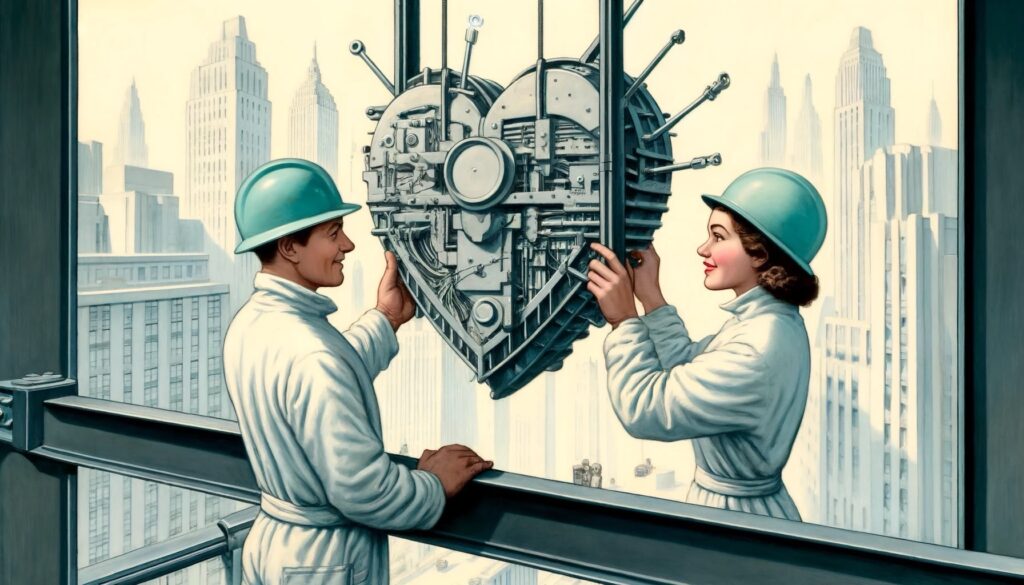
What are some hurdles people can face with this idea?
First there is the misunderstanding that to learn about someone’s weaknesses doesn’t mean that one should hurt the other person. If your partner does this, even though you’ve told them not to, it’s a warning sign. Basically, head for the hills because that person might want to just manipulate you for their own purposes.
Another issue is that once a weakness is discovered, it can be a turn-off for the other partner. (What the young ones call an “Ick” nowadays) Depending on what it is, maybe that’s ok. Better to know now than when you have kids or have invested years in the relationship. At the end of the day, the obstacles themselves are a sort of filter to making sure that that relationship is a workable one.
But isn’t finding something wrong about your partner sort of a good thing sometimes?
Any feelings that a weakness is a reason for separation are legitimate. Keep in mind though, if you do this to every single human being you have a relationship with, you will end up alone. Finding imperfection is not the point of this endeavor. It can and will be done to you as well.
Wouldn’t the fear of being rejected for the weakness make you want to hide it from your partner?
Certainly, and to be fair, you wouldn’t want to share that weakness to people in general, because they will take advantage. They will judge you. They will probably reject you. Not everyone will, but since there isn’t any emotional investment present in these relationships, they won’t want to deal with you or help you.
But if you do have a friendship, or deep relationship, and if you are not accepted by this person for who you are, it’s tough to be authentic in the relationship. Then, what would be the point of the relationship? Any weakness will come out anyway, so better to lay the cards on the table and see how you can both help each other. It’s doesn’t mean you indulge on the weakness, or you should expect your partner to help you right away. If you show a desire to want to change something, that’s a great start and you can talk about it first.
Will most people know what to do to get started?
This way of thinking is not common sense, so expect most people to not really understand the concept. Don’t take it personally if they don’t. Work on yourself first. It’s hard. Imagine having to work on yourself and then another person. There needs to be a mutual sense of effort, or the lack of effort itself might be a deal-breaking weakness. It’s a complicated dance.
So, what is one of the first steps you can take?
I recommend taking your time with this idea. The first part of any relationship is meant to enjoy each other’s company and set up a sense of trust and caring. You will gradually see if this is a mutual desire. Will the other person invest time energy in you? Can you do the same for them? If they seem like they will be completely offended or hurt by your weakness, it is an important crossroad.

What are some examples of these weaknesses that you are talking about?
Look, there are all sorts of things that we hide from our partner. Small things and big things can be there. To be honest, I am not talking about that sort of thing. I am mainly talking about blind spots that you have, that your partner doesn’t really seem to have. Some things that they do well, that you don’t do so well. This works both ways because your partner will have similar weaknesses and maybe you find that they end up depending on you to see them through. Some people see this as a burden, and can get resentful, and it can be if you feel you are “being used”. This usually means you aren’t even getting a “thank you” or acknowledgement for your effort, and it can be the worst feeling.
But the best kind of situation is when you know you are both appreciating each other, and you can formally recognize each other’s strengths and weaknesses. Over time it’s brought out in the open and you can say to each other, “Hey, you really helped me with this. Thanks.” It’s a very small thing to do, but it can mean a lot to a person. The partners are able to help each other and show appreciation in their own way.
What do you mean, “in their own way”.
This is important. Not everyone shows their appreciation in the same way. It’s called a “love language” and there was a book and all. I’m not fully convinced it’s as formal as that, but I appreciate the concept the book presented. We must think outside of the box.
We also should think of trauma our partner might have gone through. They’ve overcome something. Despite that, they show us their love, if imperfectly. Also, we can make room for neurodivergent thinking, where the reaction is not the usual one, but we’ve come to learn it means that they care for us. Being different from us does not mean wrong if you can recognize the positive intent.
Over time, if our partner gets a clue, they will learn what kind of love we appreciate the most. If we get a clue, we can do the same. We can learn the respective love style that brings the biggest spark to the relationship.
How about abusive types?
Yes, at the end of the day we must be on the alert for partners that want to control and manipulate us. I won’t go into this too deeply, but some examples are the narcissistic type of partners that show their love or take it away to control us. It can even go towards the type of partners that can hurt us physically, and that of course is unacceptable. We need to make sure we leave those situations for our own safety or get help.
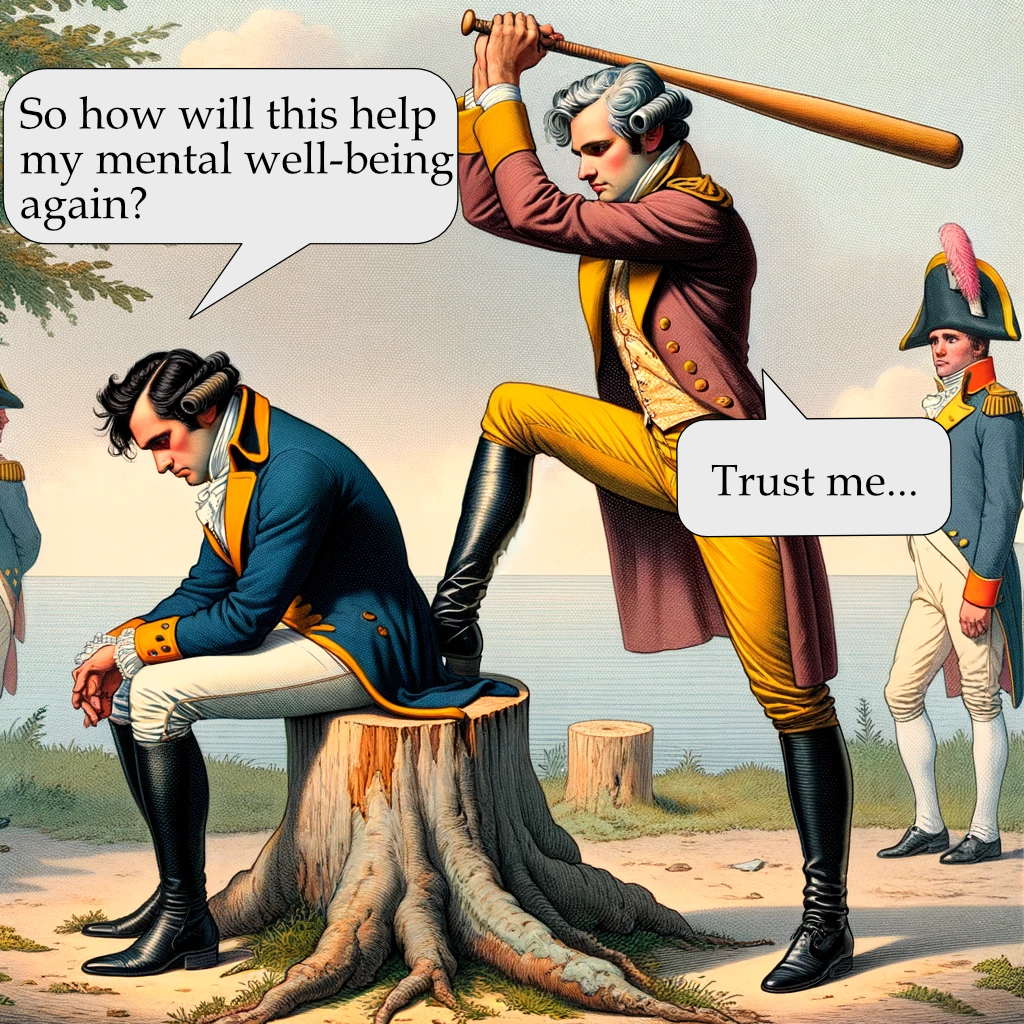
When do you know you’re winning?
When you feel someone has your back You feel pride at all the good qualities and achievements your partner has. When you feel the same or similar pride coming from them. It’s subtle, but it bloody makes your day!

